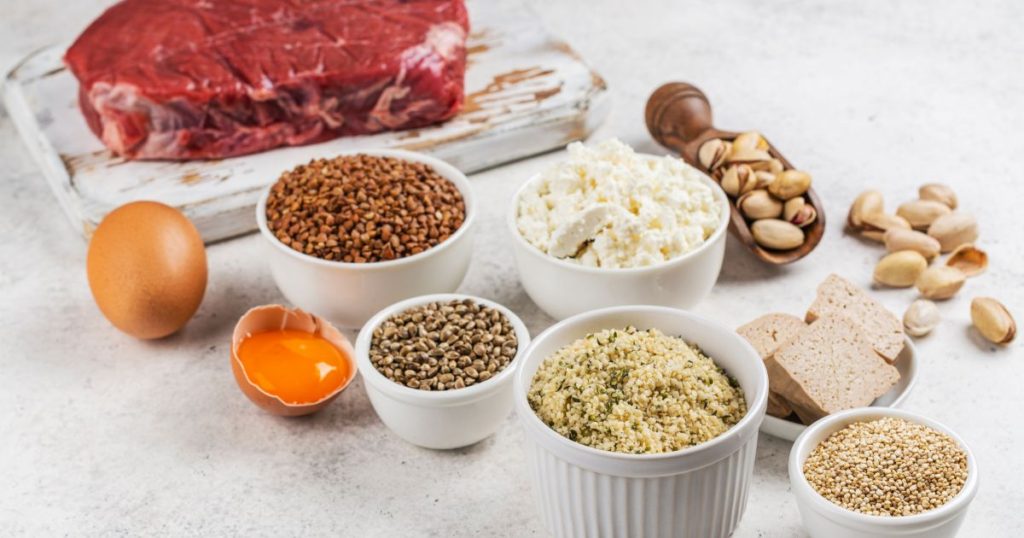Have you ever considered what the word protein means? When you break the word apart, it means “of first importance”. Proteins are essential building blocks to a healthy foundation for your body and are needed by the body for growth and maintenance. Much like the foundation to your house, without them, the house will eventually fall apart. They are the most abundant kind of molecules in the body aside from water.
Proteins are made up of amino acids. The amino acids form long chains and there are 20 different types of amino acids. Amino acids are building blocks. There are nine essential ones that cannot be manufactured by the body; they must be obtained from the diet. They are called essential amino acids because it’s essential that you get them from the foods you eat. They are phenylalanine, valine, threonine, tryptophan, methionine, leucine, isoleucine, lysine, and histidine. If all nine amino acids are not present then they can’t manufacture the other 13 non-essential amino acids. They link together in specific combinations, quantities and patterns. If one of these amino acids is missing it inhibits the proper re-synthesis of these chemical structures into new proteins used for cellular reconstruction therefore body parts will not regenerate. Your body constantly breaks down dietary protein, turns it into amino acids, and then recombines them to synthesize new proteins.
Proteins are required for the structure, function and regulation of the body’s cells, tissues, and organs. They bind and carry atoms and small molecules within cells and throughout the body and they can act like messenger proteins. They are used as precursors to nucleic acid, co-enzymes, antibodies, hormones, immune response, cellular repair, and other molecules essential for life. Additionally, protein is needed to form blood cells and can serve as a fuel source. At least 10,000 different proteins make you what you are and keep you that way.
Now that you know how important protein is, it is important to choose the right protein source for you. Dietary sources of protein include both animals and plants: meats, dairy products, fish and eggs as well as grains, legumes, vegetables, fruits, nuts and seeds. Vegetarians and vegans can get enough essential amino acids by eating a variety of plant proteins.
Protein must be provided in the proper balance. If an amino acid is present in a very low amount, protein synthesis in the body will fall to a very low level or stop altogether. If this happens the body will start to live on itself. It will tear down muscle tissue because that is where your protein is stored to run your body. You start converting your muscle to fat. That is why you see people lose body shape, lose hair, have nails that break easily, etc. When the body is not getting enough protein it begins to live off itself and begins to die (or age). The liver is another great storehouse of amino acids. If the amino acid level drops, the liver will tear into itself. This damage is one of the precursors to cancer.
Also protein cannot be utilized or metabolized without adequate B3, B6, potassium, phosphorus, and carbohydrates. Some people are protein deficient because they are eating it but not utilizing it or metabolizing it. Our digestive system needs to be able to break down amino acid patterns.
Additionally amino acids need to be bioactive. Amino acids are very sensitive to heat. In some studies, cooking protein has been shown to destroy up to 50% of some essential amino acids. When you heat protein to a temperature of 110 degrees, over 50% of the bioactivity is lost.
So with this foundation of understanding protein, I will continue with part 2 to discuss choosing protein sources so that you get the most use of your amino acid intake to build and keep your body healthy.
To your good health,
Charlene Day



